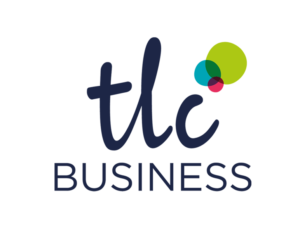Essential Content for Your Website: What Every Page Needs
Is your current website struggling to get the clicks your business deserves, or are you looking to create a new website?
We’ve put together a guide on the essential content your website should have, to make sure it is engaging, drives business and leaves a positive lasting impression on your visitors:
1) Homepage
Your homepage is usually the first impression visitors have of your website. It should clearly communicate who you are, what you offer, and why visitors should choose you.
Key elements to include:
– A brief overview of your business.
– Highlight the benefits of your products or services.
– Direct links or calls to action (CTAs) guiding visitors to important sections and encouraging visitors to take the next step. Whether it’s exploring your products, signing up for a newsletter, or contacting you.
2) About Us
The About Us page tells your story and explains what sets you apart from the competition. Here you can delve deeper into your history, core values, and any unique aspects of your approach or team. Things to include:
– Your company or personal backstory: Highlight what makes you stand out.
– Team bios: Introduce key team members to humanise your brand and build trust.
– Your achievements and credentials: To establish your brand authority.
3) Products or services
This page is where you showcase your offerings in detail. Make sure to include:
– Product/service descriptions: Provide clear, concise descriptions of each offering, highlighting key features and benefits.
– High-quality images or videos: Visuals help potential customers better understand your products or services.
– Pricing information: If applicable, include pricing details or a call-to-action to request a quote.

4) Testimonials and case studies
Testimonials and case studies are powerful ways to build trust and demonstrate the value of your products or services. They show potential customers that others have been satisfied with what you offer. Be sure to feature:
– Customer testimonials: Showcase positive reviews and feedback from satisfied customers.
– Case studies: Highlight success stories or examples of how your products or services have benefited clients.
5) Contact us
Make it easy for visitors to get in touch with you. A dedicated contact page with various ways to get in touch can improve user experience and credibility. Include:
– Contact information: Provide multiple ways for visitors to reach you, such as phone, email, links to social media profiles and a contact form.
– Business hours: Specify when you’re available to assist customers.
– Location: If you have a physical presence, include your address or an embedded map for directions.
6) Blogs or news
A blog or news section can help you establish yourself as an industry leader, improve your search engine optimisation (SEO) and drive traffic to your site. Include:
– Informative articles: Share valuable content related to your industry, products or services.
– How-to guides: Provide practical tips and advice that demonstrate your expertise.
– Latest updates: Keep visitors informed about company news, product launches, or industry developments.
It’s vital to regularly update your content, to keep it relevant and engaging.

7) FAQs
Anticipate and address common questions and concerns visitors may have with a Frequently Asked Questions (FAQ) page. Include:
– Frequently Asked Questions: Compile a list of questions and provide clear, concise answers.
– Search functionality: Make it easy for visitors to find the information they’re looking for.
We hope you’ve found this guide useful, if you need any support, our team is always happy to help.
For a free virtual marketing ideas session with marketing experts, call us on 01962 600 147 or email info@tlc-business.co.uk
